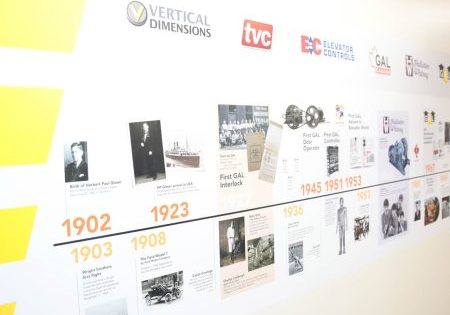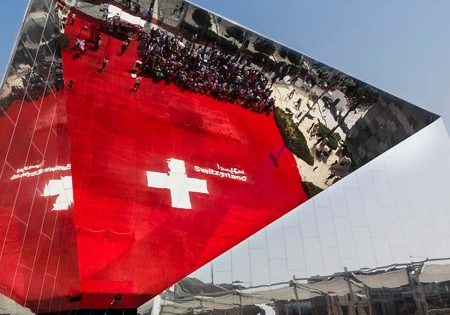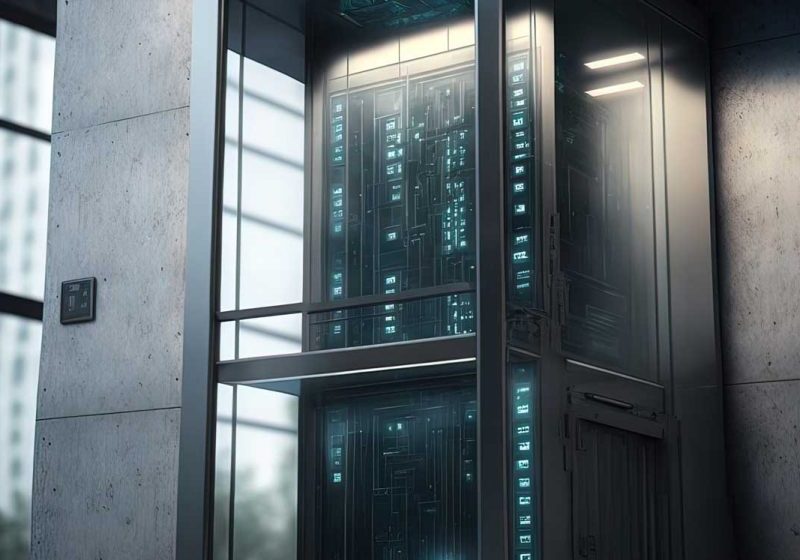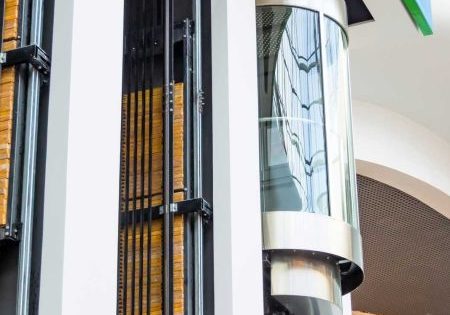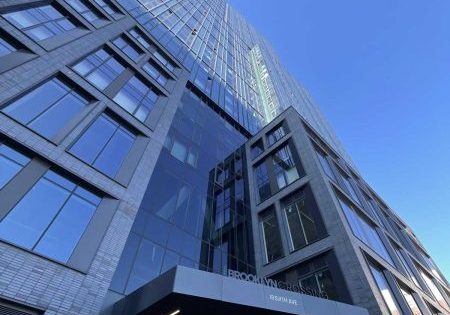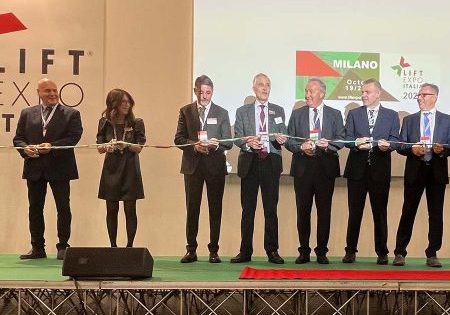10 Questions (Plus a Bonus) With Maritza Carire of ESI
Feb 1, 2023
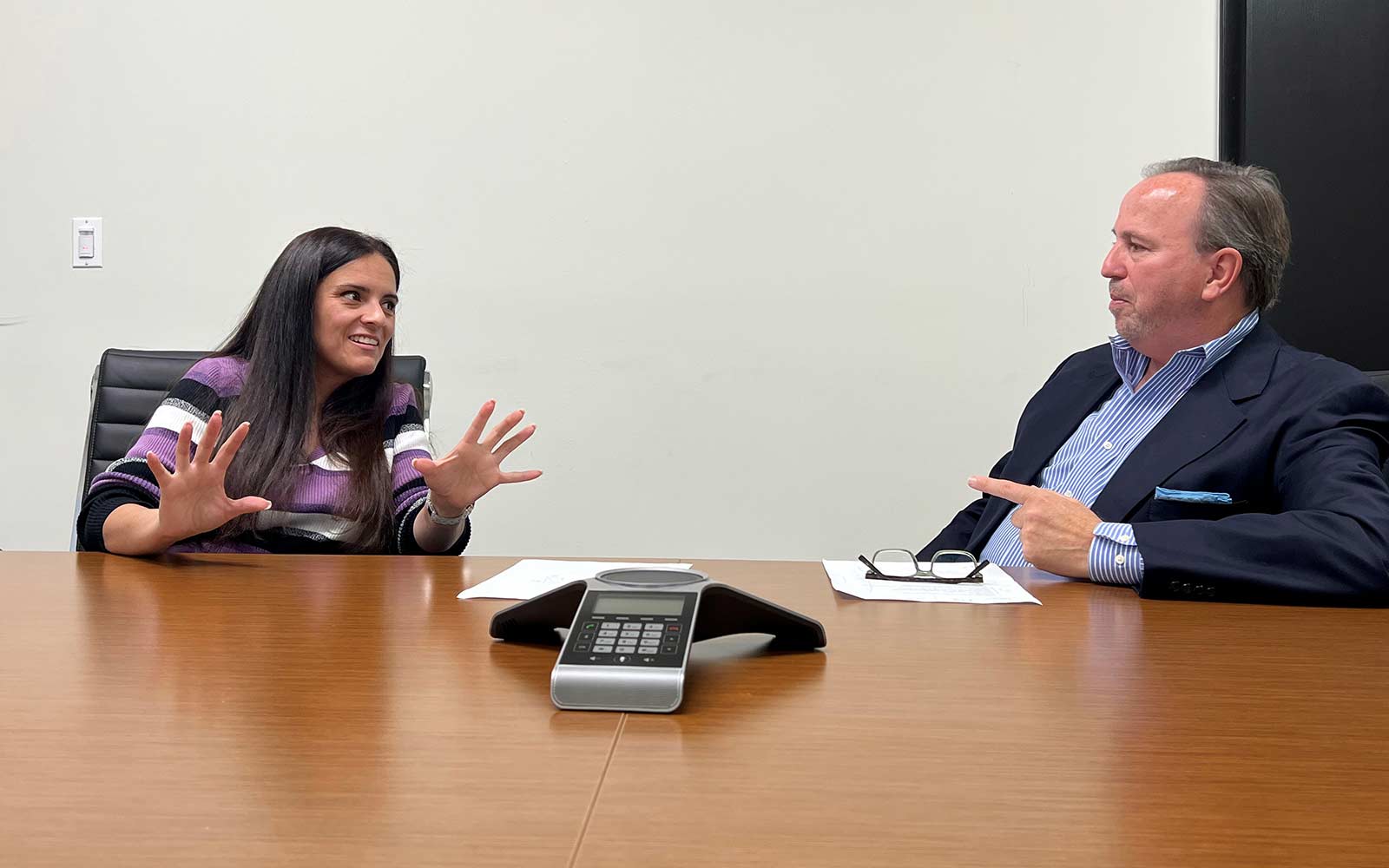
Elevator Systems’ vice president of operations takes some time to answer your author’s questions.
by Matt Jackson
I believe it was my comrade in arms, Kaija Wilkinson from ELEVATOR WORLD, who would ask me when another “10 Questions” would be coming. I’ve always tried to find the right person who, for lack of better words, was flying under the radar and had a good story to tell. There are so many interesting people in our industry. Finding the right one who will sit and answer 10 questions is still a challenge. It was at the “Pop/Joe” golf fundraiser in New York that I (MJ) met Maritza Carire (MC) of Elevator Systems, Inc. (ESI). Our paths had never crossed, and, in fact, I was talking with her colleague Jeff Johnson at a table during the cocktail hour when we actually struck up a conversation. A small-talk conversation lasted for 20 min, and it was very clear that I wanted Maritza to sit for “10 Questions.” After some cancellations and full-time work obligations, we were able to schedule an interview. I hope everyone enjoys Maritza Carire, vice president of Operations at Elevator Systems, sitting down to answer 10 questions (plus a bonus):
MJ: To begin, tell us about your background, where you grew up, etc.
MC: I am a born and raised Latina woman from Queens, NY, and eldest of three. My mother is an immigrant from the Dominican Republic and my dad is an island-born Puerto Rican. I have three children: my daughter, Gizzel (25), my son Joseph (21), and my son, Mathew (13). I returned to college a few years ago and earned my bachelor’s in business management at [City University of New York].
MJ: Tell me about your work history leading up to your position now with ESI.
MC: I started at ESI with what was supposed to be a summer and college job as I earned a degree in elementary education, but I quickly realized that teaching little children really was not for me. I started on the production floor as a wirer, wiring elevator controllers, hired by Ignatius Alcamo Sr., or Nat Sr. After some time, he retired, and I moved into an administrative assistant role under Ignatius Alcamo Jr., or Nat Jr. I was always looking to do more in-between phone calls, so Nat started teaching me CADD (computer-aided design and drafting), and I quickly became involved in helping the engineers with contract engineering where I spent about 11 years. After the acquisition, I was promoted to Operations manager by our new CEO, Amit Bansal, and then promoted once again to vice president of Operations and Customer Service.
MJ: Explain more your about current position.
MC: Being the VP of Operations and Customer service means that I need to know and/or be involved in pretty much everything. I oversee our quoting, orders, inventory, production flow, engineering flow, quality, customer service, customer relations and satisfaction, just to mention a few. A typical day for me starts before I get to the office, and in the blink of an eye, its 3 p.m. and the entire day has flown by.
MJ: We met at a golf outing. Did you play golf before?
MC: I did once at the same event a year ago. My game is terrible. I am not good at all but do enjoy riding round in the golf cart.
MJ: Did you work at ESI through COVID-19? How did it progress during the pandemic?
MC: I did work at ESI during COVID-19. We were acquired in March of 2020 about a week before the NYC shut down. During this time, I was not involved with operations and was able to work from home from March 2020 until January 2021. At this time, we were under new management, and I was asked to come back into the office full time. When this happened, I remember that my first thought was, “Here we are under new management. I am being asked to come back with different hours. They must want to let me go.” I quickly found out that I was asked to come back with a much bigger plan in May 2021 when I was promoted to operations manager.
MJ: What did the pandemic do to your work product? What changes were made, etc.?
MC: My first responsibility in Operations during COVID-19 was inventory. Prior to this, I never dealt with the purchasing or allocation of inventory, but I also never remembered a time where there was a worry about it. I knew what we needed to purchase, and as I began understanding the purchasing process, I started seeing parts not coming in. Instantly, inventory management became a full-time job, which consisted of balancing parts, finding existing alternates and, most importantly, thinking outside the box to make what we can get work. It forced innovation and new ways of doing things, so, while very stressing, at moments it was also very exciting.
MJ: Tell me a little about your journey through the working world as a woman.
MC: I have been part of this industry for 24 years and have experienced how different it is for women versus men. I can remember the first time a woman mechanic called and how shocked everyone was. Once, years ago, I had a customer tell me to put a man on the phone when I was trying to help him. For a long time, men’s and women’s roles were clearly separated and, as that separation diminishes, not everyone’s way of thinking is evolving at the same time. Prior to my promotion, I wasn’t involved outside of our building unless maybe on the phone. Now I am meeting people I have never met in person, who do not know who I am and have never heard my name. As a woman, I will run into individuals who address only the men on my team until they realize that I am part of the team. I think that sometimes women have to work harder to show that they belong in the conversation.
MJ: Any mentors?
MC: While I was finishing my degree, I did have a mentor. She was the head of the Human Resources Business Management department and my professor a few times. She was also my advisor, which is how the relationship began. Her name is Prof. Massimino, and although I have not kept in touch with her since I graduated, her words and encouragement played such a big role in my success.
MJ: Who are three people you would invite to dinner, besides me, that you just want to spend time with?
MC: If I could invite three people to dinner, the first person would be my daughter’s father, who passed away when she was 5 years old. I would love the opportunity to tell him about what happened with that life he created and completely missed out on. The second person would be Lin-Manuel Miranda. I am a huge fan of Broadway and the performing arts and find his contributions amazing. I would love to hear his journey to stardom. The third person I am going to leave open so as to not offend any of my friends and family.
MJ: What is the one thing you could change, be it your career, life, etc.?
MC: If there was one thing I would change, it would be the length of time it took for me to realize what I liked and wanted to pursue in terms of a career.
MJ: Women have become a force in the elevator industry. Any opinion on why this is?
MC: I think that it has to do with more women entering those areas that were once male dominant like engineering, project management, construction and so on. Today, women are more integrated into the workforce with policies that protect the balance between work and family life, like the bearing of children.
Get more of Elevator World. Sign up for our free e-newsletter.


